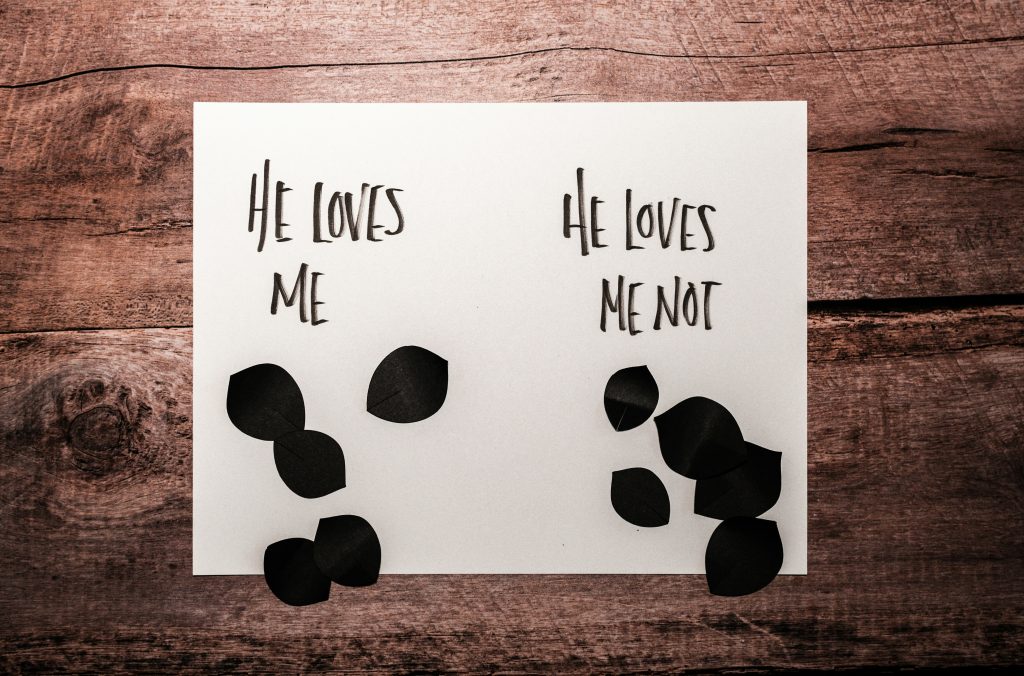Infidelity can be a harrowing experience, both for the betrayed partner and the unfaithful one. The latter often feels overwhelmed by cheating guilt and remorse over their actions. Cheating may seem thrilling at the moment, but the excitement quickly wears off when one realizes the trauma they inflicted on their loved one.
If you suspect your partner has been unfaithful, you may be wondering – do cheaters feel guilty? How can you tell if they regret what they did or feel ashamed? While some try to hide it, there are often clear signs of guilt that manifest through words, actions, and body language.
- Do Cheaters Feel Guilty?
- Cheating Guilt Signs: 15 The Most Telltale Signs
- 1. They Confess About The Affair
- 2. Their Personality and Behavior Changes
- 3. They’re Abnormally Nice and Generous
- 4. You Catch Them Crying Secretly
- 5. Dramatic Changes in Sex Drive
- 6. They Accuse You of Cheating Suddenly
- 7. Excessive Needs for Validation
- 8. Isolation and Secrecy
- 9. Overreacting Defensively to Any Accusations
- 10. Constant Lying and Alibis
- 11. Romantic And Sexual Ineptitude
- 12. They Self-Sabotage
- 13. Misdirected Anger at Friends or Family
- 14. Criticizing You More
- 15. Declining Physical Health
- Signs She Cheated and Feels Guilty
- Signs of Cheating Husband Guilt
- Looking for Symptoms of Guilt After Cheating
- Conclusion
- FAQ:
Do Cheaters Feel Guilty?
Many unfaithful partners experience intense cheaters guilt, regret, and shame after an affair. These feelings can be short-lived for some cheaters — but haunt others for years. Even if the cheating fulfilled some need at the time, facing the aftermath is emotionally excruciating.
Cheaters may feel guilty for breaking the trust of a loving partner. They may regret risking an excellent relationship or hurting someone deeply. Their conscience weighs heavy with the deception and lies underpinning their secret affair. Emotional dysregulation can result from infidelity in both extradyadic behavior perpetrators and victims. Emotional expressions of infidelity-related trauma include intense feelings of betrayal, insecurity, fury, shame, guilt, jealousy, and melancholy.
So rest assured — affairs frequently come with a psychological and emotional hangover for the cheaters, too. But this depends on the cheater’s moral compass and capacity for empathy and feeling of the cheater’s guilt.
Read on for 15 tell-tale signs that a cheating partner is swallowed by guilt and regret.

Cheating Guilt Signs: 15 The Most Telltale Signs
1. They Confess About The Affair
Some cheating partners are so racked with guilt and shame that they confess their affair. This attempt to come clean can indicate remorse over their actions. Hence, it can be one of the cheating guilt signs. However, confessions are sometimes strategic ways to ease their conscience before carrying on cheating. So, take any admissions with a grain of salt.
2. Their Personality and Behavior Changes
Significant shifts in your partner’s personality, moods, or behaviors can reflect an underlying guilty conscience. For instance, are they more irritable, aggressive, impatient, or defensive than average? Do they lash out more efficiently or drink heavily to avoid facing the ugly truth?
3. They’re Abnormally Nice and Generous
On the other hand, some guilty cheaters go overboard trying to make amends through kindness and generosity. They may shower you with unexpected gifts and compliments. But this personality 180 is just overcompensation — and their remorse will fade as soon as you understand it was one of the signs of cheater guilt.
4. You Catch Them Crying Secretly
Has your partner been frequently on edge, fighting back tears or openly crying with flimsy explanations? Sudden bursts of emotions like this betray feelings of shame and regret over their wrongdoings.

5. Dramatic Changes in Sex Drive
An unfaithful person’s sex drive can swing wildly when weighed down by cheater guilt. Some avoid intimacy with their betrayed partner at all costs to escape facing their sins. But others initiate sex constantly to prove the strength of the relationship and overshadow their mistakes.
6. They Accuse You of Cheating Suddenly
Cheating partners often deflect blame onto the betrayed partner by making false accusations. Their skewed logic is: “I think you must be cheating too!” This justification helps briefly ease their nagging conscience.
7. Excessive Needs for Validation
Cheaters craving validation reflect low self-worth and feelings of inadequacy. So if your partner incessantly wants reassurance about their talents, appearance, or importance to you, this screams cheater guilt and shame.
8. Isolation and Secrecy
If your formerly open partner is suddenly always too busy or avoids conversations, this evasiveness shows remorse over recent lies or deception. Guilty partners often physically or emotionally isolate themselves to avoid facing the consequences.
9. Overreacting Defensively to Any Accusations
Does your partner fly off the handle or spew denial upon denial at the slightest suspicion about their fidelity? Their knee-jerk, explosive reactions point to deep shame and remorse simmering under the surface.
10. Constant Lying and Alibis
It is one of the most unpleasing cheating guilt signs. Chronic lying, exaggerated stories, and improbable alibis are trademarks of a guilty cheater. The deception fills them with self-loathing but shelters them temporarily from facing repercussions or judgment. However, maintaining intricate webs of lies is mentally draining in the long term.

11. Romantic And Sexual Ineptitude
Guilt-ridden cheaters may become sexually impotent with their betrayed partner — turning cold, mechanical, or thoughtless during intimacy. Being reminded of their sins overwhelms any pleasure. Their minds and bodies recoil from the crime scene — your loving relationship.
12. They Self-Sabotage
If your partner starts arguments constantly, wrecks anniversaries, or instigates unnecessary drama within the relationship — their self-destructive behaviors reflect inner turmoil over past betrayals. Why does our harmony make them uncomfortable? Their cheaters’ guilt runs deep.
13. Misdirected Anger at Friends or Family
Have your cheating partner’s relationships frayed with certain friends or family members recently without cause? The offended party likely intuited or discovered the cheater’s misdeeds — so your partner vilifies them to muddy the truth.
14. Criticizing You More
When plagued by guilt and remorse, cheaters project their self-disgust onto their betrayed partner through criticisms. Nagging more about their looks, talents, or annoying habits helps briefly escape negative feelings about themselves. But eventually, the criticism turns inward.
15. Declining Physical Health
The mental strain of hiding lies, maintaining facades, and wrestling overwhelming cheaters’ guilt manifests physically through sleeplessness, weight changes, and sickness. If your partner’s health mysteriously slips, they likely carry secret burdens from their concealed affairs. Let the guilt eat away at them.

Signs She Cheated and Feels Guilty
When a woman has strayed outside of her primary relationship, the burden of keeping this betrayal secret often manifests through peculiar behaviors. There are a few signs of guilt in a woman. She may shower her partner with sudden affection or gifts. Her sex drive may fluctuate wildly to extremes. She isolates herself emotionally and physically. Lies roll off her tongue fluidly to cover her tracks.
Deflecting blame, projecting insecurities as accusations, and airing petty grievances drive her partner away, so she alone shoulders the shame. Tears spring forth at odd moments when memories and regrets overwhelm her senses. This inner turmoil stems from recognizing how her actions have deeply broken intimacy, trust, and stability for someone she loves. Her cheaters’ guilt eats away at any justification or pleasure the affair temporarily brought.
Signs of Cheating Husband Guilt
The results of the study showed that 53% of individuals had sex with their affair partners even though nearly all of them had physical contact with them. The probability of men reporting such types of sexual activities was higher.
When weighed down by secrets of infidelity, a husband’s typical upbeat, easygoing personality may morph drastically. Short-tempered, irritable, impatient, and moody, his hair-trigger emotions signify internal struggles with shame and regret. To overcompensate, he may gush compliments and affections out of the blue; offer promises he won’t keep, or initiate unwanted sex.
When faced with suspicions, knee-jerk explosive denials reveal his extreme defensiveness over being caught. Preserving respectable facades for their family’s sake becomes vital – so he isolates himself to avoid facing the consequences.
He may pick fights to create distance in the relationship to briefly numb the cheater’s guilt. But his wracked conscience refuses silence, spilling forth through self-sabotaging behaviors like addiction issues. Ultimately, all the deception corrodes his very soul.
Looking for Symptoms of Guilt After Cheating
Wondering whether your cheating partner feels guilty? Ruminating over all the subtle and overt ways their regret might materialize? Please pay close attention to their words, body language, and actions to follow their symptoms of guilt after cheating.
Do they initiate serious conversations about the relationship? Do they pay compliments or create sex out of the blue? Subconsciously, making amends helps ease their conscience, so lapping up apologies sweetens the betrayal.
Not everyone processes intense emotions the same way, either. Some bury guilt deep, others battle depression, and some carefully compartmentalize any remorse. But rest assured, few cheaters walk away psychologically unscathed from such painful deceit at their loved one’s expense. They may ignore or deny it superficially, but symptoms of guilt after cheating have a way of emerging eventually.

Gathering Evidence of Their Guilt
Monitoring applications are another practical method to gather more tangible evidence of guilt or betrayal. These sophisticated technological tools can provide a window into the private communications of the suspected cheater, including their messages, emails, and notes.
With these apps, you can gain insights into their interactions and the nature of their exchanges and even uncover sentiments they might not express outwardly. One such exemplary application functions discreetly, providing comprehensive access while remaining incognito.
With these apps, you can recognize symptoms of guilt after cheating for sure:
- Call Monitoring: This feature allows users to view the detailed call logs of the targeted device, including incoming, outgoing, and missed calls. By analyzing the frequency, timing, and duration of calls, one can spot unusual patterns that may suggest guilt.
- Text Message Tracking: This provides access to all sent, received, or deleted messages, along with timestamps. This allows for scrutiny of suspicious conversations that may reveal an individual’s guilt.
- Email Monitoring: This feature lets users read all inbound and outbound emails on the targeted device. These can be examined for any signs of betrayal.
- Browsing History Check: By reviewing the browsing history, one may find evidence of their partner visiting inappropriate websites, engaging in online infidelity, or searching for advice on handling cheating guilt signs.
- Location Tracking: This GPS-based feature tracks the device’s real-time location, offering the user a geographical perspective. Unexplained changes in routine or frequent visits to unfamiliar locations could be a clue.
- Social Media Monitoring: This gives access to all activities on popular social media platforms. By observing interactions, messages, comments, and likes, one can determine if there are any signs of inappropriate behavior or guilt.
- Multimedia Access lets users view all photos, videos, and other media files on the targeted device. Any secret or hidden files may suggest cheating or guilt.
- Keylogger: This function records all keystrokes made on the targeted device, making it possible to discover sensitive information or hidden conversations that might indicate guilt.
With the help of these tools, you can gather evidence of their cheating guilt signs. You must decide whether to forgive them for cheating or move on from the relationship. However, it is essential to clearly understand their guilt before making any decisions. Remember that cheating and its aftermath can be emotionally taxing, so make sure you prioritize your well-being above all else.

Conclusion
While cheating fulfills a desire, need, or temptation at the moment, facing the emotional fallout is often highly traumatic and guilt-inducing for perpetrators, too. They must wrestle with shame, regret, and deceit, tarnishing their conscience.
Recognizing common signs of cheaters’ guilt allows betrayed partners to make informed decisions about confronting the issue, demanding change, or exiting an unfaithful relationship.
While cheaters don’t wear visible scarlet letters, the heaviness of hiding lies and broken trust often overwhelms a guilty conscience. Do they regret it? Usually, yes – but only they know how deeply their shame runs. You must prioritize self-care while gauging their authentic remorse. With support, even deceitful cheaters might one day earn redemption – but never tolerance.
FAQ:
How Do Cheaters Show Guilt?
Cheaters display guilt through sudden confessions about the affair, significant personality/behavior changes, false accusations toward their partner, dramatic shifts in sex drive, overreacting defensively to suspicions, chronic lying/alibis, self-sabotage, misdirected anger at others, criticizing their partner more, and declining mental or physical health.
Does Cheaters Guilt Ever Go Away?
For some cheaters, the guilt temporarily fades over time — but resurfaces whenever faced with reminders, accusations, or relationship issues. For others, immense shame and regret haunt them permanently, compelling eventual honest confessions. But guilt depends on one’s conscience — remorseless cheaters may never feel guilt substantially.
Do Cheaters Regret What They Did?
Usually, yes — cheating jeopardizes stable relationships and inflicts deep trauma onto a loving partner, violating trust and intimacy bonds. Facing such destruction causes intense cheaters guilt and regret in most cheaters — even if the affair fulfills an unmet need temporarily. But ruthless cheaters with a lack of empathy may feel no regret.
How Do You Know if They Regret Cheating?
Signs a cheater feels regret over cheating includes full confessions, consistently respectful/remorseful attitude when discussing the affair, accepting blame rather than deflecting, communicating clearly to rebuild trust/intimacy, ceasing all contact with their affair partner, expressing sorrow over hurting you specifically.
How Does a Guilty Person Act?
When plagued by guilt, a person often acts defensive, agitated, impatient, aggressive, moody, evasive, isolationist, perfectionist, overly critical, appeasing, generous to a fault, emotionally volatile or erratic, self-destructive, deflecting blame, giving false excuses/alibis, crying unprompted, and excessively needing validation.
What Is the Body Language of a Guilty Person?
Body language signaling cheating guilt includes avoiding eye contact, closed posture, constantly fidgeting, covering vulnerable body parts, quavering voice, clearing the throat or swallowing often, shaking legs/hands, scratching/touching the face/nose excessively, faking smiles that don’t reach the eyes, and nervous pacifying behaviors like nail-biting or lip chewing.
Do Cheaters Feel Hurt?
Yes, cheaters often feel emotional hurt, pain, and jealousy when betrayed partners initiate separation, file for divorce, or start dating someone new after discovering the affair. Losing their stable relationship rocks a cheater’s world. But the hurt they feel likely pales in comparison to the excruciating pain inflicted through their past deception and betrayal of intimacy/trust. What goes around — comes around.



